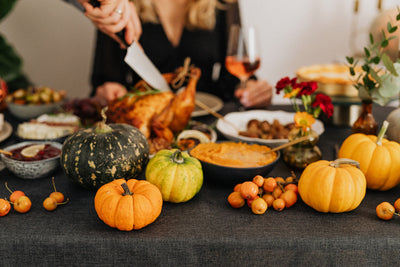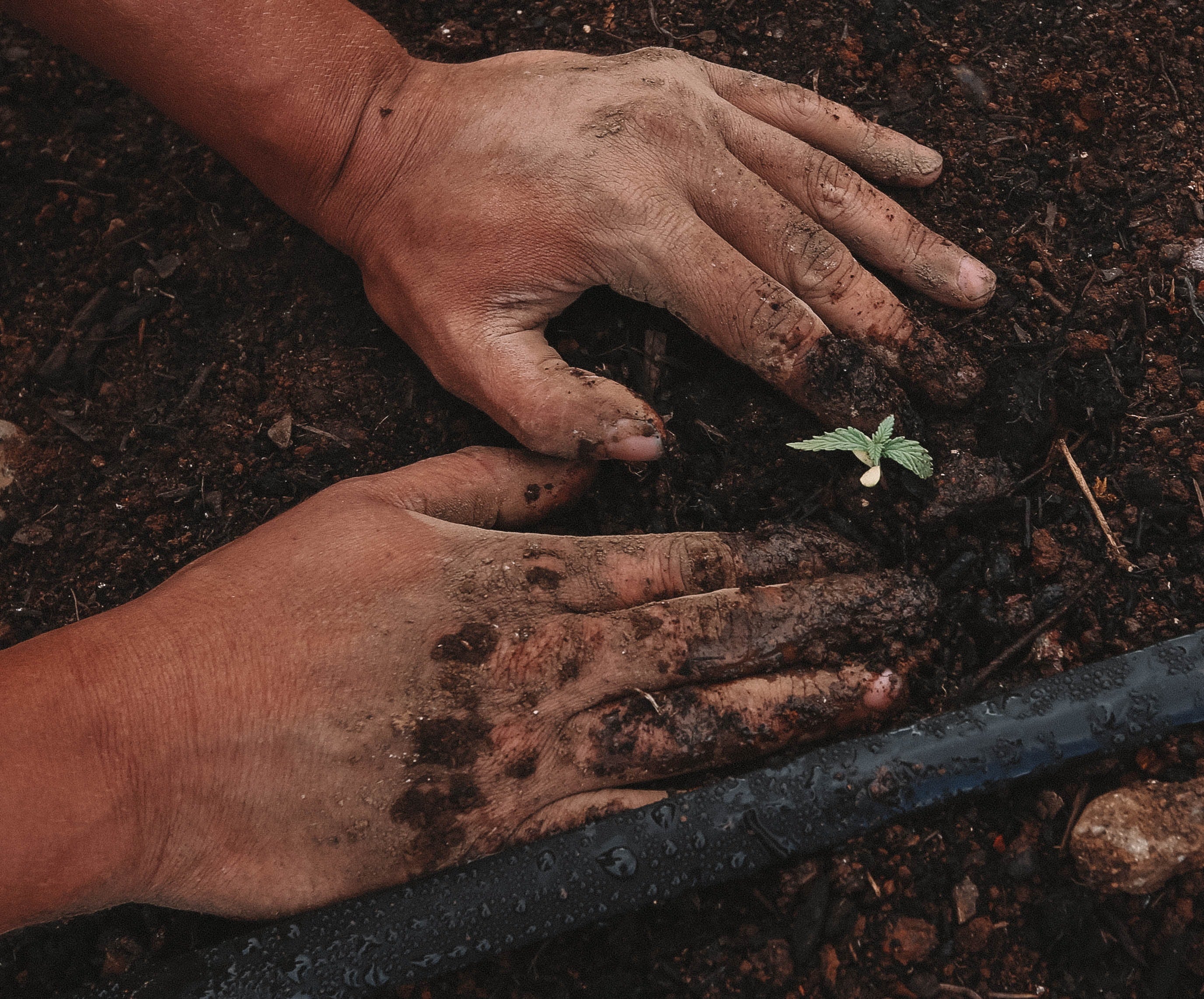The foundation of a thriving survival garden is its seeds and what kind you choose can make a long-term impact on your plants. Choose the wrong ones and you could grow flavorless, lackluster food. But how do you know which seeds are the right choice for your garden? Hybrid? Genetically Modified? Heirloom?
Each seed has its share of pros and cons, but there is a clear winner that stands out when you're getting into traditional survival gardening. Take a look at different seeds, their pros and cons, and how to make the best choice for your garden.
What are Hybrid Seeds?
Hybrid seeds are created by crossing two different varieties of the same plant. The process is a little complicated, which involves taking the pollen from a male plant or flower and transferring it to the female flower. You ultimately create a different plant, which can be good or bad, depending on your goals.
Benefits of Hybrid Seeds
When the new hybrid plant you create bears seeds, they tend to grow faster and adapt better to environmental stress. Many people use hybrid seeds to produce higher yields or fight off specific pests prone to their geographical area. Hybrid seeds are more common among mass producers, like grocery stores or food brokers looking to bring as much product to the market as possible.
Cons of Hybrid Seeds
If you're a survival gardener, you don't need to rely on the strength of hybrid plants if you have a good plan for getting rid of pests and tending to your plants. They're also more expensive and usually require technical skills to get them going. Beyond cost and difficulty, hybrid seeds also have a reputation for being less nutritious and flavorless than other options.

What Are Genetically Modified Seeds?
Genetically modified seeds, or GMO seeds, are modified to contain characteristics that growers may find favorable, like resistance to pests or herbicides. But as with any seed, they come with their share of pros and cons. It was common to lose crops to weeds or contaminate them with products like Round-Up, making genetically modified seeds a good choice for some producers.
Pros of Genetically Modified Seeds
The biggest pro to genetically modified seeds is they grow plants that don't need as many pesticides and fertilizers. This win may be necessary for corporate farms and large-scale producers but aren't usually suitable for survival gardening. Creating a sustainable lifestyle involves natural fertilizers, organic matter, and environmentally-friendly ways to get rid of bugs and pests, like attracting more birds and bats.
Cons of Genetically Modified Seeds
One of the downfalls of using genetically modified seeds is you don't know what you're getting. Some research shows they could prompt allergic reactions, raise antibiotic resistance, and are even linked to some cancers. There are also few companies in the genetically modified seed market, making growers dependent on limited suppliers.
What About Heirloom Seeds?
Heirloom seeds are never genetically modified, hybrids, or cross-pollinated. They're usually classified as being at least 50 years old and can be passed down through the generations.
Pros of Heirloom Seeds
Heirloom seeds are both affordable and durable. For many survival gardeners, it's a dream to use seeds that came directly from their grandparents' original plants and then keep passing them down through their families. The practice is effective and efficient, and once you start and see success in your garden, you lessen your reliance on a company to produce new seeds for you.
Cons of Heirloom Seeds
Surviving and homestead gardening celebrate the use of heirloom seeds, but there are some downsides. Heirloom plants aren't usually as vigorous and drought-tolerant as hybrids. Heirlooms can also be unpredictable, as they may grow like crazy one year and then trickle off the next.
It's also not easy to find heirloom seeds, especially in the quantity needed to start a survival seed vault. Or you can buy directly from Seed Armory, which only sells 100% non-GMO, 100% heirloom, and 100% open-pollinated seeds. We also package everything to maximize its shelf life by heating and sealing our products and using resealable mylar. Browse our heirloom seeds today.
What Type of Seeds Should You Use for Your Survival Garden?
Heirloom seeds win out if you're looking for quality, long-lasting seeds that grow delicious food for generations. If you're looking for a more durable plant to increase yields in mass, hybrids may be a better choice, but the taste and quality aren't usually as impressive as heirlooms.
GMO seeds aren't recommended due to their lack of transparency and reliance on big companies to supply you with what you need. These seeds end up compromising your self-sufficiency in the long run.
How to Get Rid of Pests from Your Heirloom Plants
When choosing heirloom seeds, you need to consider that yields are more prone to pests and damage. The good news is there are plenty of ways to protect your plants' health, including introducing the right pets.
For example, ladybugs, which aren't bad for your garden, love dining on aphids that are busy eating your leaves. Bats aren't exactly pests, though most homeowners aren't eager to have them around. Unless you're a survival gardener, try installing bat houses and watch as they come out at night to snack on mosquitoes and other pests.
Using homemade solutions, like soap and water or hot pepper spray, can also discourage pests from turning your survival garden into a snack. Of course, not all survival garden pests are bugs. If you have curious critters in your garden, try our Solar Powered Ultrasonic Pest Repeller that lights up and emits sound waves to keep out dogs, cats, rodents, squirrels, and raccoons. True to living a sustainable lifestyle, this pest repeller doesn't require batteries and instead relies on solar.

How to Store Your Seeds for Maximum Shelf Life
Regardless of what types of seeds you choose, survival gardening is all about sustainability. That focus includes storing your seeds for maximum shelf life by following a few best practices. If you purchase seeds from Seed Armory, the hard work is done for you. Our packaging is heat-sealed and uses resealable mylar. You end up with a 24-year shelf stable.
If you're saving seeds from your current yield, start with a bundle of our ten seed-saving packet bags. Made from silver and clear mylar, they easily collect and store your seeds at harvest. We use these same survival-grade packets for our survival seed vaults, which means they also have a shelf life of 25 years and are heat-sealed for added protection.
Combat one of the biggest dangers to your seed storage–moisture.Silica gel desiccant moisture absorbers are safe, environmentally friendly, and help preserve your seeds for the long haul. Add them to your resealable seed packages after opening to help keep them remaining as fresh as possible.
Best of all, our silica gel packs can be recharged after absorbing moisture. Just heat them in an oven at 250°F for one to two hours to return them to their original orange color. They're now safe to absorb moisture again. Silica gel packs are cheap, but also crucial to your success if you plan to freeze your seeds. You ensure they're dry and secure and stay viable for as long as possible.
Seed Tips for Beginning Survival Gardeners
When you're new to survival gardening, it's easy to forget which herb is which or where you planted your cucumbers. Beyond an air-tight, dry seed storage strategy, you can simplify the process by keeping track of what you're planting. By the time everything grows, you should be able to see which plants are which visually, but some will look alike.
You can also make the process as simple as possible with inexpensive plant labeling supplies. Our T-shaped colored plastic bedding labels keep your survival garden organized, eliminating the need for guesswork.
Next Steps
Ready to start growing your own survival garden with the best seeds possible? Start browsing our selection of survival-grade seed vaults to create your own sustainable food source.











